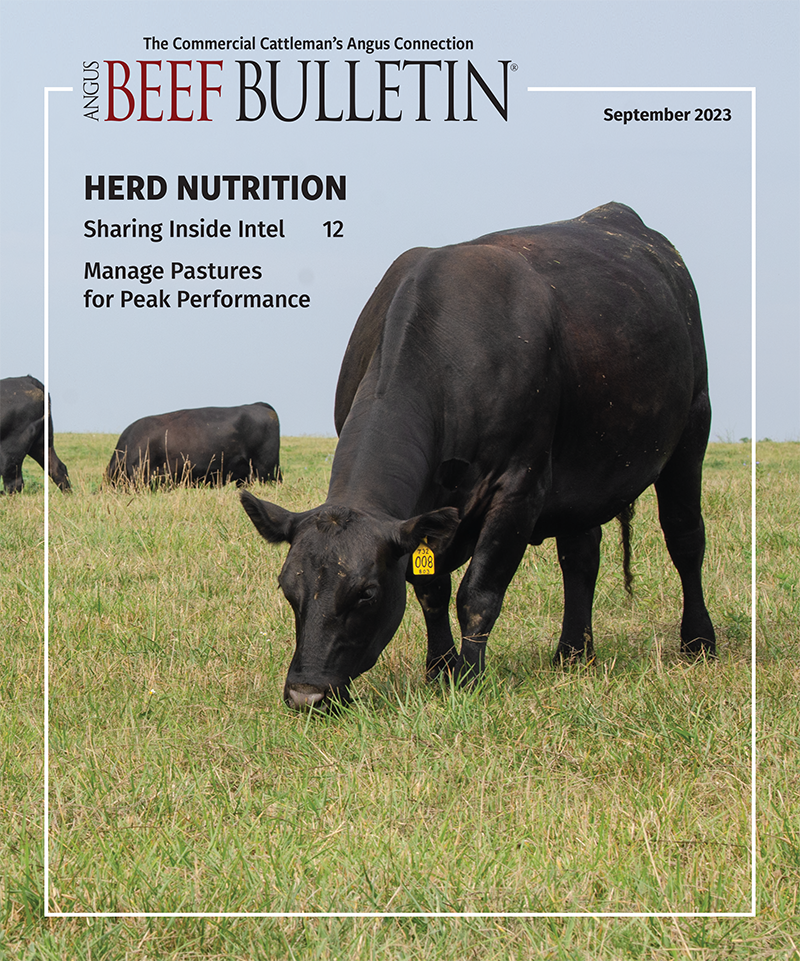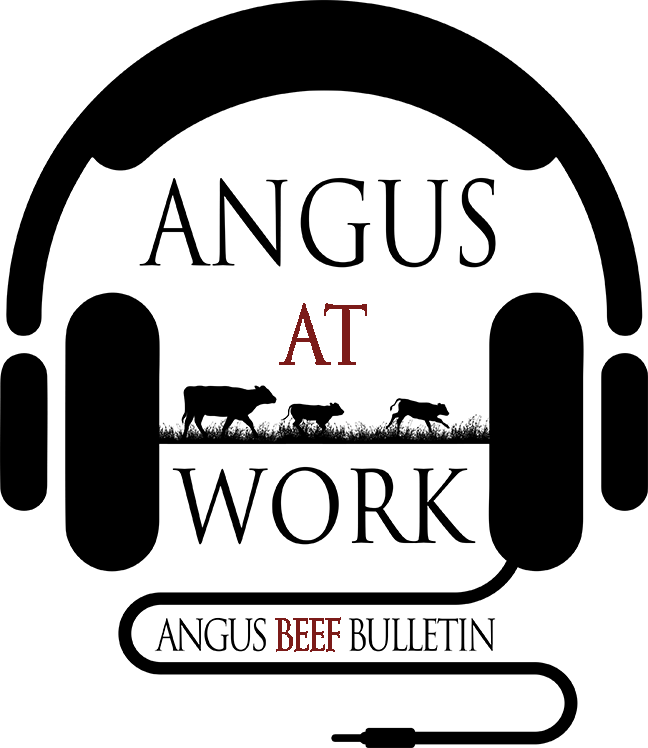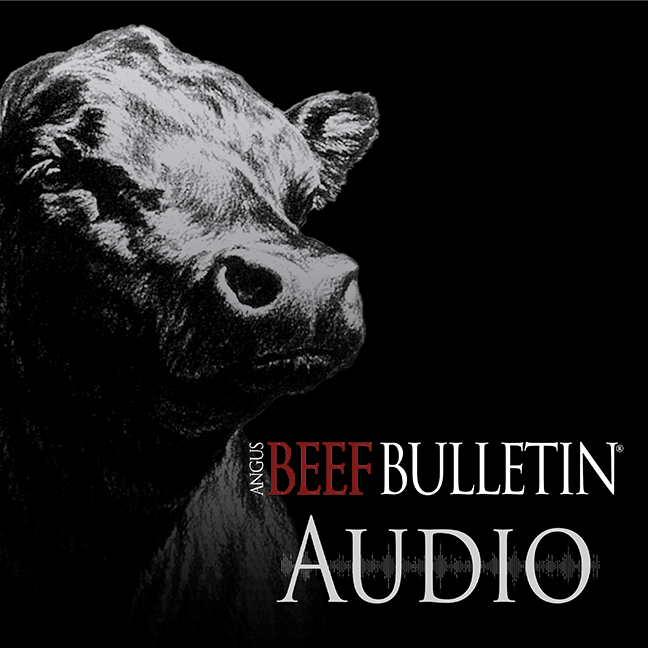
Association Perspective
The power of Angus
At this point many of you have seen the ad campaign from the American Angus Association that uses the phrase Powered By AngusSM in regard to using registered Angus bulls. What exactly does that mean? Are all “Angus” bulls not the same?
In this month’s “Association Perspective,” I am going to dive into exactly what that means from the perspective of a regional manager. We will discover the differences in registered and non-registered Angus bulls, and what that can mean to your bottom line as a commercial cow-calf producer.
On more than one occasion, I have picked up a small town newspaper and flipped through the classifieds to find listings for “low birth weight Angus bulls.” I have inquired about some of these bulls to find out that the majority of them are not registered; some are not even purebred Angus. As far as their claims that these bulls are low birth weight, they have no substantial data backing this claim to ensure you can expect these bulls to produce low birth weight calves. These sellers are simply taking advantage of the fact that Angus is a calving-ease breed, and they know the term “low birth weight” is appealing to buyers. This is just one example of how misleading information is used to market bulls.
What does a registration number on a bull mean, and how does that affect the predictability of how he performs in your herd? A registered Angus bull represents that the breeder has kept up with the pedigree; in most cases that breeder has also submitted data that will affect the overall accuracy of the EPDs (expected progeny differences). No matter what traits you are looking for, weather it be low birth weight, higher weaning or yearling weights, maternal, carcass or a well-rounded blend of all of these traits — I would encourage you to find a seedstock producer who has a similar focus as you and purchase your bulls from them. When there are multiple generations of data submitted, it allows us to make a well-informed decision and we are less likely to be unsatisfied with the offspring these genetics produce.
DNA testing is an entirely different set of tools that can help predict which traits a bull is most likely to pass along to his offspring. Is this technology 100% accurate? Of course not. But we have made strides over the past 10 years, and you can rest assured the DNA tests will point you in the direction you are wanting to go. I have had personal experience with DNA results where I didn’t like the results I received, but after a couple of years of production, I found out the cattle performed in line with how the DNA tests had predicted.
If you like consistent, predictable genetics, the power of Angus has what you are looking for. I encourage you to consider that when you buy a registered Angus bull and the seller asks you if you want the papers, always say yes. These papers give you the power to access current information about these bulls as you move forward. It will give you the ability to remember what genetics were injected into your herd over the years. This will prevent you from linebreeding or stacking genetics that you would prefer to stay away from. This is just my perspective, but the word “Angus” represents high-quality cattle and is more than just a black bull. For your next herd sire, I strongly encourage you to invest in a bull backed by generations of proven genetics — Powered By Angus. Until next time I hope that your pastures are green, your weaning weights are heavy and all of your cows are bred.
Editor’s note: Radale Tiner serves as regional manager for Region 9, covering the states of Texas and New Mexico. Click here to find the regional manager for your state.



